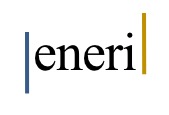EU-Project: ENERI
EU-project: ENERI
by Dirk Lanzerath (Coordinator)
A network of networks
The “European Network of Research Ethics and Research Integrity” (ENERI), funded by the European Commission’s Horizon2020 research and innovation programme, brings together two important fields: research ethics (RE) and research integrity (RI). RE and RI are two sides of the same coin, namely the responsible and ethical conduct of research. While RE addresses the application of ethical principles to the different fields of study, RI refers to conducting research in accordance with pertinent legal and professional frameworks. 
ENERI is based on existing networks, projects and infrastructures that already initiated and developed important steps in the relevant fields. The European Network of Research Ethics Committees (EUREC) together with ENRIO and All European Academies (ALLEA) initiated ENERI in collaboration with partners from eight European countries. Specialists in training in RE and RI, and specialists in e-communication and database design are involved. The partners of ENERI are strongly linked to other relevant EC-funded projects and networks such as Path2Integrity, VIRT2UE, EnTIRE, SHERPA, SIENNA and PANELFIT.
Main objectives
Since the beginning of the project in September 2016, ENERI aims to establish a permanent platform of exchange in RE and RI with the goal to establish a culture of good scientific practice. To achieve this goal, the ENERI partners are working on different levels, in particular: sharing experiences through communication and exchange; improving competences of experts through training and capacity building; developing methods of certification, evaluation and monitoring in RE and RI; make exchange easier to foster harmonization between RECs and RIOs.
ENERI is notably committed inoverlapping issues of the both fields and ways on how to keep the network of networks sustainable. This includes research on expertise in RE and RI and the development of training options, standard operating procedures and proper ethical frameworks for research ethics committees (RECs) and research integrity offices (RIOs). The main ENERI tools developed during the project, beside the training materials, are the ENERI e-community, the handbook and recommendations for RE and RI and the e-manual.
Stakeholder engagement
In the last 2,5 years ENERI organized a variety of workshops and other activities to integrate the views of RECs and RIOs, policy makers, RE and RI experts, representatives from industry, journalism and the civil society and other relevant stakeholders. The ENERI Stakeholder Workshop in Athens in September 2017 marked the start of creating a culture for good practice in RE and RI. Beyond the relevant results for developing the network process in the RE/RI community, the content and tools for training, and discussing aspects of certification, the workshop had a significant impact on the local community of Greece as an important contribution of capacity building in a country where an RE/RI community is only marginally established. In June 2018 the ENERI partners held a series of consensus conferences in four European cities (Aarhus, Athens, Vienna, Vilnius), where mostly local stakeholders were invited to discuss the design and set up of the ENERI e-database.
Furthermore, relevant networks and stakeholders were engaged through different surveys and questionnaires.
Training and capacity building
RECs and RIOs are key actors in facilitating RE and RI. ENERI, together with REC and RIO members, developed training modules for countries where infrastructural shortcomings in RE and RI can be identified and organized boot camps for REC and RIO members (in April 2018 in Rome and in March 2019 in Prague). A compendium of existing RE and RI materials potentially suitable for training purposes of RECs and RIOs is already available on the ENERI website (www.eneri.eu). Under the heading “ENERI classroom” the training and capacity resources developed by ENERI will shortly be published on the website as well .
The ENERI tools
In order to facilitate the building of a vibrant RE and RI community, ENERI established the ENERI e-community which, along with the ENERI Handbook and the ENERI e-manual, forms the main building block of the new RE and RI network.
The ENERI e-community: Based on the results of the consensus conferences and an online survey, ENERI developed a definition of what constitutes expertise in RE and RI. Experience in both fields is most important. Experts should also have knowledge in ethics or philosophy and to a lesser extent legal knowledge. Furthermore, experts should be personally committed, open-minded people, with analytical minds. Based on these criteria the ENERI e-community has been developed – an open database for RE&RI experts and a space for discussion, sharing of information, exchange of good practices and training material. The database is integrated in SINAPSE, a free public service of the European Commission and was launched in February 2019. RE and RI experts are welcome to become members of the ENERI e-community. The database offers self-registration for all RE and RI experts.
The RE and RI handbook: The handbook consists of two parts. One part on recommendations for the investigation of research misconduct, already available on the ENERI website, and a second part on recommendations, voluntary harmonization procedures and checklists for researchers and REC members, which will be available soon.
The ENERI e-manual: The ENERI e-manual, also available on the ENERI website, seeks to instill deliberation around issues of RE&RI. While the e-community simplifies building strong network ties among its members, the handbook and the e-manual serve as basis for discussing novel challenges and disseminating best practices.
Unlike most other manuals, the ENERI handbook and the e-manual are construed as genuine living documents that are supposed to constantly evolve by incorporating network members’ dynamic expertise. As the database seeks to facilitate network growth, the handbook aims to expand the stock of expert knowledge.
More information can be found on the ENERI website.
